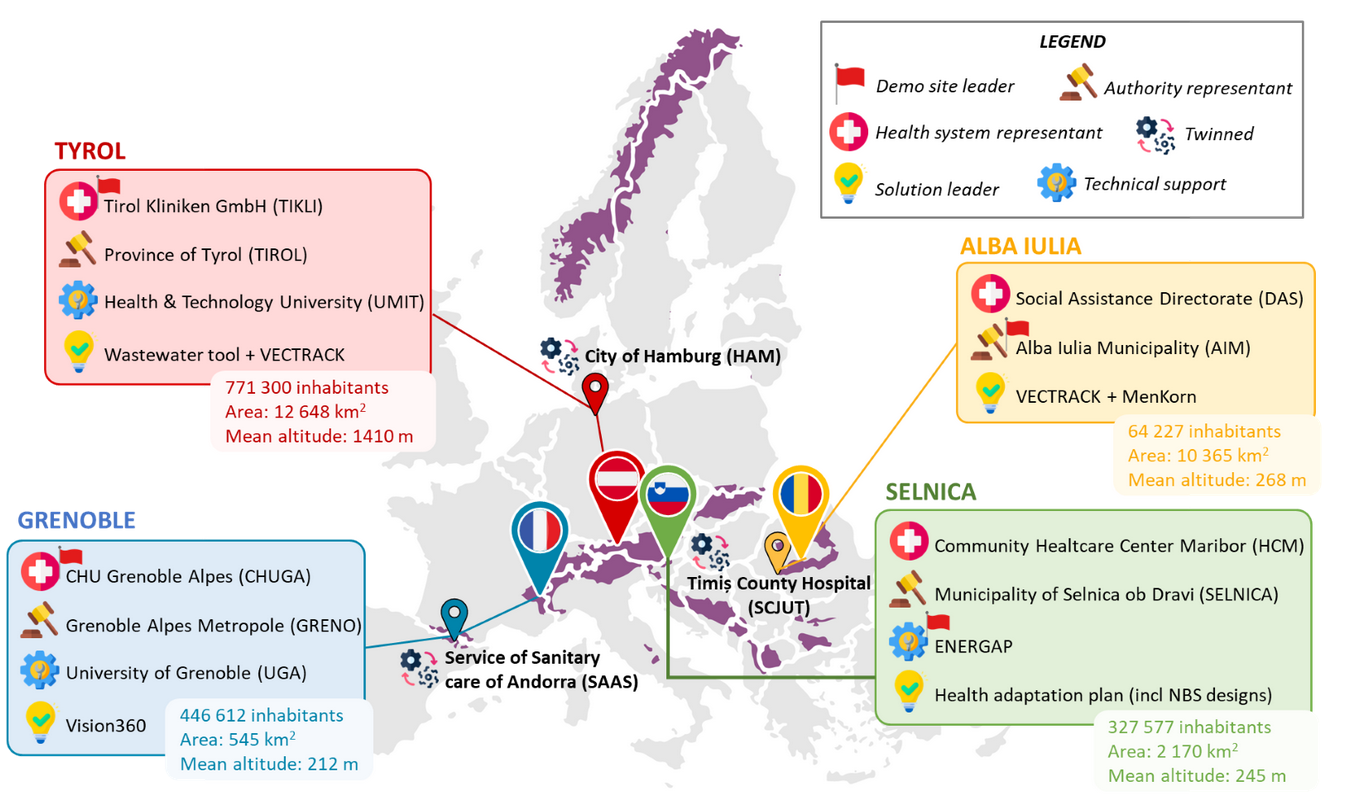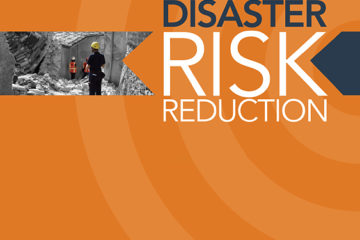Launch of the MOUNTADAPT Project under Horizon Europe 2023

We are thrilled to announce the commencement of the MOUNTADAPT project, a Horizon Europe 2023 initiative funded by the European Commission. This innovative project is dedicated to developing adaptation solutions aimed at reducing the impact of climate change on health in mountainous regions.
Project objectives
MOUNTADAPT is a Horizon 2023 project funded by the European Commission, with a consortium of 27 partners from across Europe. The aim of the project is to improve the resilience of health systems to the adverse effects of climate change, including extreme weather events, in European alpine biogeographical regions.
Building on previous projects and initiatives, Mountadapt will improve the prediction of climate change health impacts, build health system resilience in the context of climate change, strengthen the capacities of health professionals to cope with climate change-induced hazards, and identify, test and scale up pioneering solutions in designated demonstration sites in Austria, Slovenia, Romania and France.
Climate change is creating new health risks and amplifying existing health problems. The effects of climate change are felt both directly and indirectly on human, plant and animal health. Direct effects result mainly from changes in the intensity and frequency of extreme weather events such as heat waves and floods.
Indirect effects can be felt through changes in the incidence of insect-borne diseases (i.e. diseases transmitted by vectors such as mosquitoes and ticks), rodents or changes in water, food and air quality. In addition to impacts on human health, climate change is expected to alter the life cycles of plants and animals.
While there is a wide range of European projects aimed at studying the impact of climate change on the health of city dwellers in plains and coastal areas, there are few projects specifically aimed at studying these impacts in the European Alpine bioregion. The Pyrenees is one of the southernmost alpine bioregions on the European continent. This makes the cross-border Pyrenean area a sentinel territory for climate change, where the design and testing of adaptation strategies to increase the resilience of health systems can become a source of inspiration for other mountain areas.
Find out more here: https://ec.europa.eu/info/funding-tenders/opportunities/portal/screen/how-to-participate/org-details/999999999/project/101155958/program/43108390/details
Partners
EUROQUALITY SAS, France, as project leader;
CRIMEDIM (Center for Research and Training in Disaster Medicine), Italy;
National Center for Scientific Research “Demokritos”, Greece;
Aria Technologies SAS, France;
Université Grenoble Alpes, France;
Spitalul Clinic Judetaean de Urgenta pius Brinzeu Timisoara (SCJUT), Romania;
Health Care Withouht Harm Europe (HCWHE), Belgium;
Crisisoft, France;
Irideon SL, Spain;
Centre Scientifique et Technique du Bâtiment, France;
Universidad de la Iglesia de Deusto, Spain;
Hamburgisches Weltwirtschaft Institut Gemeinnutzige GMBH, Alemania;
Universita Degli Studi del Piemonte Orientale Amedeo Avogadro (UPO), Italy;
Tirol Kliniken GMBH (TIKLI), Austria;
Amt der Tiroler Landersregierung (AMT), Austria;
UMIT TIROL – Private Universitat fur Gesundheitswi, Austria;
Zdravstveni dom Dr Adolfa Drolca Maribor, Slovenia;
Obcina Selnica Ob Dravi (SELNICA), Slovenia;
Energetsko Podnebna Agencija za Podravje (ENERGAP), Slovenia;
Directia de Asistenta Sociala Alba Iulia (DAS), Romania;
Municipality of Alba Iulia, Romania;
Centre Hospitalier Universitaire de Grenoble, France;
Grenoble-Alpes-Métropole, France;
Consorcio de la Comunidad de Trabajo de los Pirineos, Spain;
FREIE UND HANSESTADT Hamburg, Alemania.



0 Comments